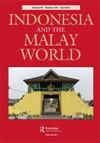Islam as therapy
IF 0.9
3区 社会学
0 ASIAN STUDIES
引用次数: 1
Abstract
ABSTRACT In the wake of decolonisation across the Islamic world in the 20th century, Muslim intellectuals experimented with various theories and approaches of psychology to arrive at a better understanding of and treatment for an array of psychoses and neuroses that affected their societies. This article explores the ideas of a prolific Indonesian psychologist and public intellectual, Zakiah Daradjat (1929–2013), and her endeavour at introducing what was termed as ilmu jiwa agama (religious-oriented psychology). I argue that religious-oriented psychology was an innovative field that called for the integration of the sacred sources of Islam, Muslim psycho-spiritual tradition as well as insights derived from European psychology. Although constrained by the policies of an authoritarian regime and her religious outlook, Zakiah Daradjat hoped that this new body of knowledge would guide 20th-century Muslims to delve deeply into the teachings of Islam as a therapy for their psycho-moral challenges.伊斯兰教作为治疗
随着20世纪伊斯兰世界的去殖民化,穆斯林知识分子尝试了各种心理学理论和方法,以更好地理解和治疗影响他们社会的一系列精神病和神经症。本文探讨了一位多产的印度尼西亚心理学家和公共知识分子Zakiah Daradjat(1929-2013)的思想,以及她为引入所谓的ilmu jiwa agama(宗教导向心理学)所做的努力。我认为,以宗教为导向的心理学是一个创新的领域,它要求整合伊斯兰教的神圣来源、穆斯林的心理-精神传统以及来自欧洲心理学的见解。尽管受到独裁政权政策和她的宗教观的限制,Zakiah Daradjat希望这种新的知识体系能够引导20世纪的穆斯林深入研究伊斯兰教的教义,作为他们心理道德挑战的治疗方法。
本文章由计算机程序翻译,如有差异,请以英文原文为准。
求助全文
约1分钟内获得全文
求助全文
来源期刊

Indonesia and the Malay World
ASIAN STUDIES-
CiteScore
2.00
自引率
0.00%
发文量
17
期刊介绍:
Indonesia and the Malay World is a peer-reviewed journal that is committed to the publication of scholarship in the arts and humanities on maritime Southeast Asia. It particularly focuses on the study of the languages, literatures, art, archaeology, history, religion, anthropology, performing arts, cinema and tourism of the region. In addition to welcoming individual articles, it also publishes special issues focusing on a particular theme or region. The journal is published three times a year, in March, July, and November.
 求助内容:
求助内容: 应助结果提醒方式:
应助结果提醒方式:


